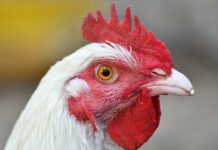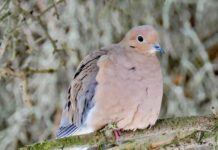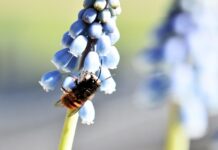
Livestock guardian dogs are “stuck in a rut,” it seems. With all of the changes happening in our country, our society and around the world, farming is also changing.
As we try to determine what we want our food sources to look like, livestock guardian dogs can play an invaluable role in that future, provided we select dogs with the tools to accomplish the task. Like many other issues in our lives today, “what we’ve always done” just isn’t going to cut it any more.
I am well aware that I set a higher standard for my working dogs than anyone else I know. When I send one out into the world, I want it to be capable of dealing with whatever life changes happen to its shepherd. Whether it’s starting a family, adding new stock and acreage or moving across the country, I need a dog that says, “I’ve got this!”
Something new
While I practice and encourage raising methods that support this inherent nature in my dogs, nothing proved that more than our latest adventure.
The third weekend in June, in conjunction with Amissa Locus, my neighbor’s homestead, we hosted Farei Kennels’ first livestock guardian dog seminar. A dozen tents and 30 strangers invaded the winter holding area for a three day class on being a shepherd. I wanted people to see just what these incredible dogs are capable of, and they didn’t let me down.
In the bright sunshine of Thursday afternoon, Colter and Mimi alerted to a vehicle at the gate, and I walked up to welcome the first guest and get them parked. Each guest received a copy of the farm rules and proper greeting protocols for livestock guardian dogs.
Now, I drive my truck into the pasture on a regular basis to unload hay and grain, so Seven and Tanaka watched with interest as the strange vehicle rolled in and parked. Each visitor was “frisked” by the pair and then left to set up their tent and get settled. The Great Pyrenees next door at Amissa Locus also watched with interest. This is the first time we had been invaded in such a manner, but there was no barking and no aggression. Their shepherd had it handled.
There was another alert at the gate. The next guest had arrived. And so on. I repeated the process over and over again. By Friday midday, Colter had stopped alerting. He’d never seen us have a party in the pasture before, but he is smart enough to see a pattern.
We’ve got this
Our farm schedule stayed much the same for the weekend. I did remove the horses and cows from the tent area. The combination of big stock and tent ropes seemed like more excitement than we needed, but the sheep spent the weekend with us.
We removed the dogs from the tent areas at night to ensure success. The guests don’t want to be told they aren’t allowed to use the restroom at 2 a.m. Kangals are fond of rules, and if everyone was in their tents when Mom left, then in their tents they shall stay, until her return.
All of our dogs accepted the invasion with calm confidence and displayed proper manners, despite the giant barbecue now set up in their pasture. Any time there was a question, my dogs looked to me: “How do we handle this?”
Our guests were as respectful as one could wish, following farm rules while still having a good time. Demonstrations and discussions were done throughout the days, along with chores and times to just relax.
Not in a rut
In the wee hours of Monday morning, Warin — from next door — alerted to a problem. The last guest was packing up, and no shepherd was there to see them off. He was concerned things were being removed from the pasture. A simple assurance from his shepherd, and he relaxed back to watchfulness.
My dogs dropped back into their regular routine without a single hiccup, and despite the activities, Colter was back on gate duty as soon as the last guest was gone. I didn’t have to explain it to him. Smart dogs with good training have the confidence to analyze what’s going on and ability to apply their knowledge to a new situation — and Colter’s no dummy.
I have never been so proud of my dogs and their training as I was that weekend — proving that the “rut” many of these dogs are raised in is only as deep as the humans who own them dig it.












